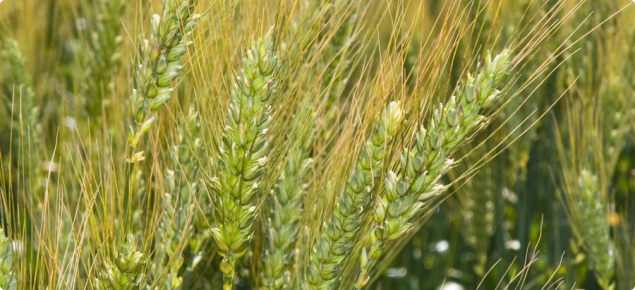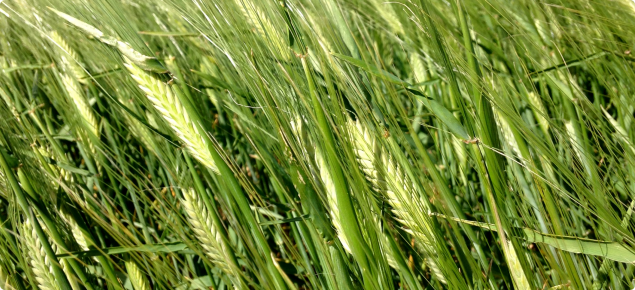WA grain receival standards
In WA, grain receival standards including snail tolerances are set by the Grain Industry Association of WA. It is important to note that the WA snail tolerances (number) and associated definitions of a snail (species, alive, dead, whole / piece, shell / body etc) may vary across different commodities and grades.
| Commodity | Sample size | Grade | Number | Definition |
|---|---|---|---|---|
| Barley
| per ½ litre sample | MALT1, MALT2 | Nil | Live or dead ONE = more than half a shell Fragments are acceptable |
| BFED1, BFDEC | 1 | |||
| Wheat | per ½ litre sample | H1, H2, APWN, APW1, APW2, ASW1, ANW1, AUH2 | 1 |
Whole snail shell |
| ANW2, AGP1, AUN1, AUW1, FED1 | 10 | |||
| Canola | per 500g sample | CAN1, CAG1, CAN2, CAG2 | 1 | Live or Dead ONE = whole snail or pieces more than half, or a snail body without a shell less than 10mm in size A snail is defined as greater than 10mm if it is a whole snail shell or non-whole piece of snail shell that cannot fit through a 10-millimetre hole. All non-whole or broken pieces that are less than or equal to half a snail are classified as admixture Snails greater than 10mm will remain a level three (3) contaminant and the load rejected on delivery |
| CAGS, CANS (SNAIL OFFGRADE) | 10 |
Source: Grain Industry Association of WA FINAL GIWA Standards Review
Australian Export Requirements and Inspections
Federal Department of Agriculture Plant Export Operations Manual
To ensure exported grain meets importing country requirements for non-injurious pests, including snails, the Federal Department of Agriculture provides inspection instructions on tolerances through its Plant Export Operations Manual to its Authorised Officers.
Australia’s current export tolerance is not more than two live field species in any single 2.25 litre sample
The Role of an Authorised Officer
Authorised Officers (AOs) are trained and assessed individuals who are appointed under the Export Control Act 1982 to perform specific export inspection functions such as ensuring empty containers and/or vessel holds meet required standards and prescribed goods (plants and plant products) exported from Australia comply with legislative requirements. When undertaking these functions, AOs are regarded as Australian Government officials. Authorised Officers FAQ's
Importing Country Requirements
Importing country requirements that must be met by exporters and the Federal Department of Agriculture are set out in the Manual of Importing Country Requirements (MICOR).
Tolerance levels imposed by an importing country take precedence over any tolerances listed in the Department of Agriculture Plant Export Operations Manual, and are not always the same.
With WA barley and canola exports valued at nearly $1 billion each in 2017/2018 it’s important to understand importing country requirements for these commodities in our key export markets.
For China, importing requirements are specified under the Protocol of Phytosanitary Requirements for Australian Wheat and Barley Imports into China. The protocol refers to snails as a pest of quarantine concern and expects Australia to continue to minimise snails.
Supporting the China protocol, is an Australian Industry Management Plan (IMP) for Australian Wheat and Barley Exports to China, owned and authored by the Grains Industry Market Access Forum.
To minimise snails in wheat and barley exported to China, the current tolerance in the Industry Management Plan is set at one live snail per 2.25 litre sample
All exporters to China must provide a signed declaration to a Department of Agriculture Authorised Officer prior to inspection attesting that "The consignment complies with the Industry Management Plan to supply wheat and barley to the Chinese Market and a stock selection process and/or other actions were undertaken to minimise the level of pests of quarantine concern to China."
Acknowledgements
This information is being provided as part of the Department of Primary Industries and Regional Development (DPIRD) WA Snail Mitigation Project, which supports maintained market access for grain into WA’s key export markets by conducting research on best practise snail mitigation strategies, and supporting grower extension to reduce snail contamination in grain delivered to WA bulk storage and handlers.
This communication has been endorsed by WA Snail Mitigation Taskforce members, specifically:
- Department of Primary Industries and Regional Development, Western Australia
- Department of Agriculture, Canberra
- Grains Industry Market Access Forum
- Grain Industry Association of Western Australia
- Storage and Handlers – CBH and Bunge



